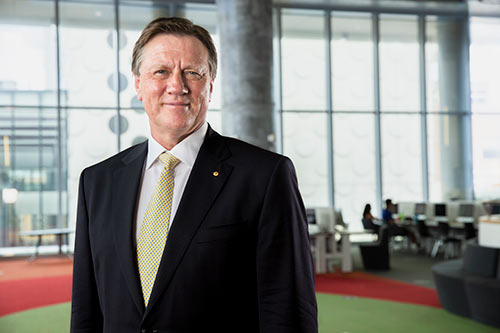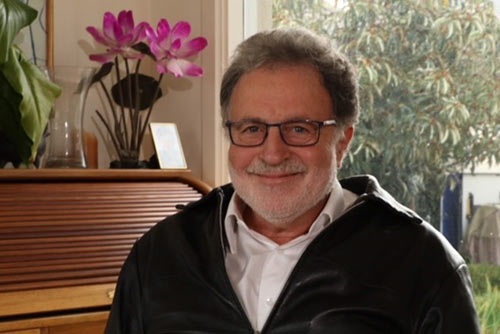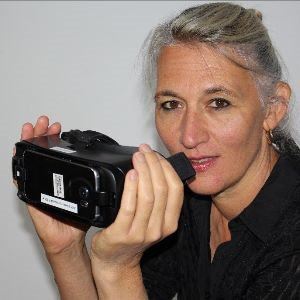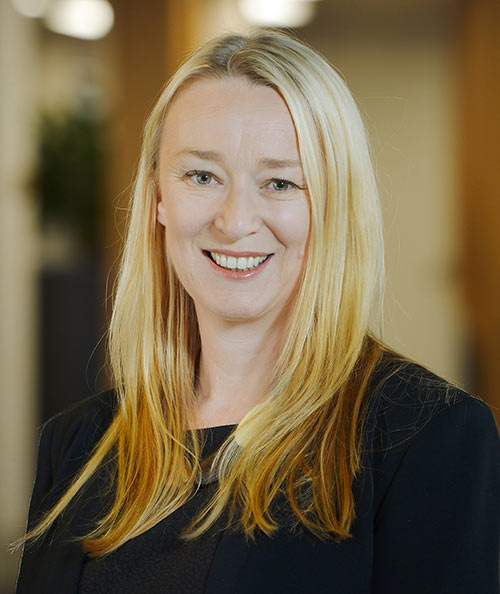Mental Health Programs for Aged Care Residents: Translating Knowledge to Practice

The forum focusses on how we can transform research findings and knowledge about mental health care into practice and programs to improve choice, control and dignity for older adults living in residential aged care facilities.
The forum brings together researchers, clinicians, volunteers, students, residential aged care staff, policy makers, local governments, families and older adults to hear about the latest and most innovative mental health programs for aged care that are being rolled out across Australia.
The Swinburne Wellbeing Clinic for Older Adults has been operating for nearly 10 years. We have learnt much about mental health care practices within residential aged care communities, and are proud to host this forum to showcase the best ideas we have encountered.

Professor John Pollaers OAM
John Pollaers has a proven track record in leading major Australian and international companies including Pacific Brands and Foster’s Group, and in his current roles is working across Government to bring about major reforms to vocational education and training and aged care. He is a passionate advocate for education and training, the care of senior Australians and including more people with disability in work and training. John is Chair of the Australian Industry and Skills Committee, and the Australian Advanced Manufacturing Council. He is the Chancellor of Swinburne University and is Executive Chairman of Leef Independent Living Solutions, an innovative functional health and assistive technology business with its Independent Living Centre based in South Caulfield, Melbourne.
Professor Sunil Bhar
Professor Sunil Bhar is is a Professor of Psychology at Swinburne University of Technology. He is the department chair of the Department of Psychological Sciences, and co-founder of the Swinburne Wellbeing Clinic for Older Adults – a ‘full service’ mental health service for residential aged care communities. He runs an active research lab focusing on the emotional wellbeing of older adults and the mechanisms of reminiscence and cognitive-behavioural therapies. He has won more than $2 million in research grants to examine the wellbeing of older adults living in residential aged care settings. He is on the advisory board of the Beck Institute and a diplomate of the Academy of Cognitive Therapy. He spent four years working with Aaron Beck, MD investigating the efficacy of cognitive therapy for late-life suicide prevention.
Rebecca Collins
Rebecca Collins worked in aged care for ten years before joining The Swinburne Wellbeing Clinic for Older Adults. She is the Clinic Director of the Digital Story Program as part of The Wellbeing Clinic. She was a Research Project Coordinator for the Dementia and Aged Care (DACS) project and is also heavily involved in our Elders at Ease (ELATE) Research Project in aged care facilities.
Rebecca’s knowledge of residential aged care will help you understand the complexities of working with residents and aged care facilities.
Digital stories for residential aged care
Over the last six years, Swinburne University has run the digital story program to improve quality of life and psychological health of aged care residents through reminiscence and ongoing companionship, helping them to feel valued and validated. The program has aimed to support elderly residents facing mental health challenges such as depression, anxiety, grief, social isolation and end of life issues.
As part of the Digital Story Program, undergraduate students travel weekly to selected residential aged care facilities. They meet one on one with a resident to produce a three-minute digital story. These stories capture their values, significant life events central to the person’s sense of self and more.
Literature suggests that ‘person-centered care’ in residential aged care facilities, which recognises a resident’s values, preferences and dignity, can significantly improve emotional wellbeing.

Professor Richard Freadman
Educated at Brandeis University and the University of Oxford, Richard Freadman is Emeritus Professor of English at La Trobe University and was Founding Director of La Trobe’s Unit for Studies in Biography and Autobiography. A Fellow of the Australian Academy of the Humanities, he is the author of various academic works on autobiography, including a large scale study of the narratives Australian Jews have written about their lives, THIS CRAZY THING A LIFE: AUSTRALIAN JEWISH AUTOBIOGRAPHY (2007). He has also published two memoirs: SHADOW OF DOUBT: MY FATHER AND MYSELF (2003) and STEPLADDER TO HINDSIGHT: AN ALMOST MEMOIR (2016). He currently facilitates life-writing in healthcare settings with Eastern Palliative Care and Baptcare and is an Adjunct Professor associated with the Wellbeing Clinic for Older Adults at Swinburne University.
Life Writing at the End of Life Care
In this paper I will discuss the uses of autobiographical writing as an aspect of end of life care. I will refer to the Eastern Palliative Care Biography Program where I receive my training in, and now practice, end of life life-writing. I will discuss ways in which unobtrusive narrative advice can assist with such issues as the finding of a personal voice, the sense of a readership, and options for structuring the narrative. I will touch on metaphors that can be helpful – going back to the well, beads on a string, narrative as gift - and on the importance of the process involved in meaning-making in this context, as opposed to an undue emphasis on outcomes. Whilst each client and each narrative partnership will of course be unique, I will try to offer a general characterization of the narrative partnerships that can arise in these contexts and of respects in which they might differ from some forms of say verbal counseling.

Dr. Tanya Petrovich
Dr Tanya Petrovich is Business Innovation Manager, Centre for Dementia Learning, Dementia Australia.
Tanya completed studies in the field of Genetics at the University of Melbourne. She has spent many years teaching in the fields of Science, and Health Science. She joined Dementia Australia in 2008.
Tanya leads the team in applying innovations in technology for dementia care education. In 2013 the Virtual Dementia Experience was released and was the first VR experience to be used in Dementia Care Education. Since then the team has developed other VR experiences and are currently working on a project to create an artificially intelligent Avatar living with dementia.
Digital Solutions for Dementia Care:
Digital technology can be used as a tool to raise awareness, increase understanding, and improve practice in dementia care. At Dementia Australia we have used technology as a powerful tool to engage with audiences, to create immersive learning experiences. The Virtual Dementia Experience™ is just one way in which game technology has been used to engage professional and family carers in understanding dementia. This experience is now available nationally through the mobile VR experience EDIE, Educational Dementia Immersive Experience. Successful education outcomes and practice change can be achieved through experiential learning, which allows carers to see and feel from another’s perspective.

Colleen Doyle is currently senior principal research fellow at NARI and a research consultant. She was Professor of Aged Care at the Australian Catholic University 2012-2017 in a health service research partnership with Villa Maria Catholic Homes. Her research with NARI focuses on the impact of befriending for older adults living in residential aged care, funded by the National Health and Medical Research Council, ways to improve dementia care and health service evaluation. She holds AHPRA registration as a non-practising psychologist and founded the Australian Psychological Society special interest group in psychology and ageing. Colleen has published extensively in academic and technical reports, including lead author for a book in 2018 on ‘Moving into residential care; a practical guide for older people and their families’.
Volunteering with older adults living in residential aged care: early learnings from the Befriendas study
Volunteering has started to receive more attention in the research literature, and it has been growing as a movement, reflecting its importance in both an economic and social sense. For older adults living in residential aged care, volunteers can provide a valuable support base. It is important that we understand how best to provide the service and what benefit volunteers themselves can gain from interactions with older adults.
We developed and evaluated a program for volunteers to learn about supporting older adults in residential aged care. This presentation will discuss the latest research on volunteering and present preliminary findings from volunteers’ experiences in the Befriendas study.

A/Prof Tanya Davison
A/Prof Tanya Davison is a psychologist who has been conducting research into late-life depression, anxiety, and dementia for over 15 years. She has a particular interest in non-pharmacological treatment approaches that can be feasibly implemented in residential aged care facilities to improve outcomes for older people. Tanya is based at Swinburne University of Technology, where she is leading a large NHMRC-funded project that aims to address the high rates of depression in aged care settings.
Helping residents settle in residential aged care: Learnings from the PEARL study
In her presentation, Tanya will introduce the Program to Enhance Adjustment to Residential Living (PEARL). This program enables residential aged care staff to better tailor day to day care to meet the psychological needs of newly admitted residents and helps residents to adjust to their new environment. Tanya will provide a background into residents’ psychological needs and explain how these needs can be met using a structured approach. While the clinical trial of PEARL is still underway, she will share preliminary findings and illustrate the program using case studies.

